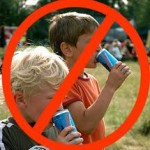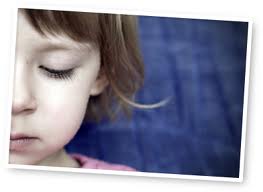Anxiety is an acute condition with an extreme and constant feeling of uneasiness in the form of apprehension and vanity. The person with anxiety becomes susceptible to the refusal by other people around them.
How can you describe anxiety attack?
Anxiety attack is a severe, psychobiologic response markedly by extreme anxiety and panic. There are warning signs manifested by shortness of breath, palpitations, faintness, dizziness, pallor of the face, GI discomfort and an extreme emotion of coming up of death. The anxiety attacks normally happen suddenly which last for only a few seconds to an hour or much longer and it differ from how many times it occur in a day or in a month.
What are the signs and symptoms of child anxiety?
The signs and symptoms of child anxiety may vary in children with different ages and they are some of the following:
- There is a bed wetting.
- The child having a nightmare.
- A child having anxiety avoid participating in any school activities or social gatherings.
- The child is being too clingy and cries so easily.
- There is a regular thought of panic and fright which interrupt activities.
- There is a constant of being troubled in the future event.
- Â There is a great trouble in making friends and being too timid.
- A child experiences a low self-worth and no self-confidence.
- There is a fear of being embarrassed
- There is fright of committing mistakes.
- There is a presence of compulsive behaviors.
- There is an intense struggle to any change.
- A child experiences a frequent physical symptom of having a headache or stomach ache without any apparent reason.
What are the causes of child anxiety?
- Separation anxiety or fear of being away or separated from their parents, caretaker or whoever the child is being attached to. Although it is common for a young child to be scared of being away from the people they are attached to but for the older child that still experiencing an extreme clingy inclination may have a possibility of anxiety. This will cause a child to have trouble from sleeping at night and experience an unreasonable fear of losing loved ones. The child may experience a constant upsetting until he becomes easily panicked, showing major tantrums, don’t want to go to school and being more clingy to the parents. A child feel so horrified of being apart even for a short period of time that even to sleep alone may find it difficult because of frequent nightmares.
- A child frequently fears of unknown or unfamiliar people, places or situations. Meeting new people or having the first day in school can be the apprehensive time for the part of a child.
- A child who experienced a traumatic situation that will lead to think that there could be a threatening thing to happen. This may possibly consist of physical injury or scare like accident or a dog bite that a child may require counseling from a medical expert.
- A child may also get worried of something at school like having a very strict teacher, hard time of making friends or someone bullying him or her.
- Having problems inside the family. This may cause anxiety to a child witnessing the frequently fight or arguments of the parents. This may lead to insecurity to the part of a child. Separation or divorce of the parents, death or illness among the members of the family and a cruel discipline can all lead to child anxiety.
What are the natural ways to help in treating child anxiety?
1. Â Â Diet
 The very first step that could help to fight child anxiety is the food and drinks that they are taking in. Keep them away from foods and drinks that have caffeine like sodas, coffee, any stimulant drinks and chocolates. Avoid also food with instant sugar or with high carbohydrate content like junk foods. A child should be provided with a healthy food and exercise to fight any anxiety symptoms.
The very first step that could help to fight child anxiety is the food and drinks that they are taking in. Keep them away from foods and drinks that have caffeine like sodas, coffee, any stimulant drinks and chocolates. Avoid also food with instant sugar or with high carbohydrate content like junk foods. A child should be provided with a healthy food and exercise to fight any anxiety symptoms.
2.    Breathing exercise
 Breathing exercise is one way of relieving anxiety attack. Take a deep breathe gradually by inhaling through the nose and exhaling through the mouth will bring a big help to reduce anxiety. Take time to relax to calm the body.
Breathing exercise is one way of relieving anxiety attack. Take a deep breathe gradually by inhaling through the nose and exhaling through the mouth will bring a big help to reduce anxiety. Take time to relax to calm the body.
3.    Relaxation method
 This relaxation method will be very important in controlling anxiety. Try to find a quiet place where a child can relax, read their favorite books and listen to a relaxing music.
This relaxation method will be very important in controlling anxiety. Try to find a quiet place where a child can relax, read their favorite books and listen to a relaxing music.
4.    Cognitive behavior therapy
 This therapy will be more effective if there is the involvement of the family. This involved with the skills training, application and practice. They are taught of reassessment of frightened situations, how to relax and self-reward.
This therapy will be more effective if there is the involvement of the family. This involved with the skills training, application and practice. They are taught of reassessment of frightened situations, how to relax and self-reward.
All these natural ways in treating anxiety will bring a great benefit not only for a child with anxiety but for the whole family.
